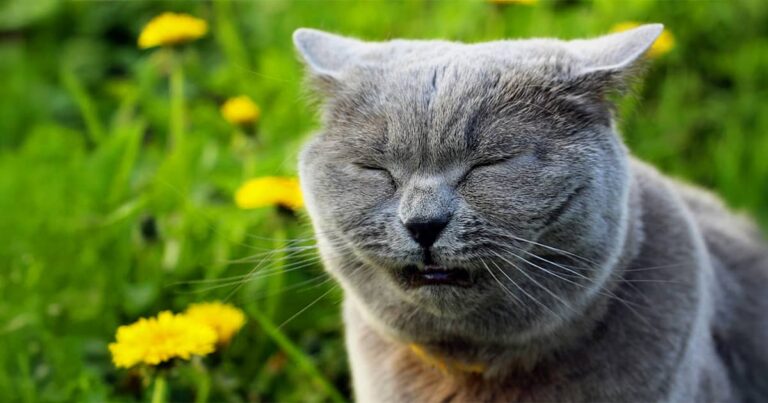Cats love to sleep. That’s no secret. For all the time cats spend sleeping — which they do more than anything else — you’d think cat owners would be more aware of cat snoring. If you have been surprised by slumber-related noises coming from your cat and wondered if those snoring sounds are normal, read on.
Do cats snore?
The short answer is: Yes, some cats snore. Cats have sleep cycles just like people do. During the rapid eye movement (REM) phase, you may see your cat’s whiskers twitch or feet paddle. They also experience a deeper, more relaxed sleep. It’s during this sleep phase that snoring may occur.
For many snoring cats, nothing is wrong. But in some cases, snoring may indicate a medical concern.
Causes of cat snoring
Although less common in cats than dogs and people, snoring is usually caused by some type of partial blockage in the “upper airways” — the nose, back of the mouth (pharynx) and throat. During deep sleep, the tissues of the upper airways are fully relaxed and can vibrate audibly during breathing. That’s how the body makes the snoring sound.
There are several reasons why a cat snores. The most common reasons include:
- Excess weight. Overweight or obese cats are more likely to snore. In fact, excess weight is one of the most common health issues that leads to snoring in cats, dogs and people. In overweight cats, fat accumulates in the tissues surrounding the upper airways, putting pressure on your cat’s nasal passages that in turn leads to snoring. While snoring may not be an immediate medical issue for some cat parents, obesity can lead to other serious health issues.
- Head shape and facial features. Brachycephalic cats — those with flattened faces such as Persians and Himalayans — snore more than other breeds of cats. That’s because the shape of your cat’s nose and nasal passages have a lot to do with how air moves in and out. These cats may also have smaller nostrils, which can restrict breathing, and elongated soft palates that can partially block the opening of the windpipe (trachea) — and lead to noisy sleeping.
- Sleep position. Certain sleeping positions can cause your cat to snore, especially if the head and neck are angled in a way that restricts airflow. Typically, this snoring is temporary and stops when the cat changes positions.
- Upper respiratory conditions. Viral and bacterial upper respiratory infections and chronic inflammation of the nasal passages can cause snoring in a cat. Polyps, tumors and foreign objects (such as a grass blade) in the airways, sinuses or back of the mouth can also trigger snoring. These conditions are often accompanied by other signs or symptoms, such as coughing, agitation and discharge from the nose or eyes.
When your snoring cat needs veterinary care
Given that many of the contributing factors to cat snoring are relatively harmless, how is a cat owner to know when to seek veterinary care for a snoring cat?
Cat snoring is unlikely to be an issue if your cat has always snored while sleeping and the snoring isn’t linked to difficulty breathing or becoming more pronounced over time. But if your cat suddenly starts snoring, the snoring becomes increasingly louder, or other symptoms like sneezing, nasal discharge, coughing or a change in meow are present, it’s time to schedule an appointment with the veterinarian.
Any time you have questions about your cat’s health or behavior is a good time to have your cat examined by a veterinarian.
Of course, if your snoring cat is among the 60 percent of U.S. cats who are overweight or obese, your veterinarian can help you with a weight loss plan for your kitty. Odds are your cat’s snoring will subside as he or she slims down.
You can find tips on helping your cat lose weight here. And if you think your kitty will hate you for putting him or her on a diet, check out this article.
RELATED POST: Fat Cats Face Serious Health Risks








